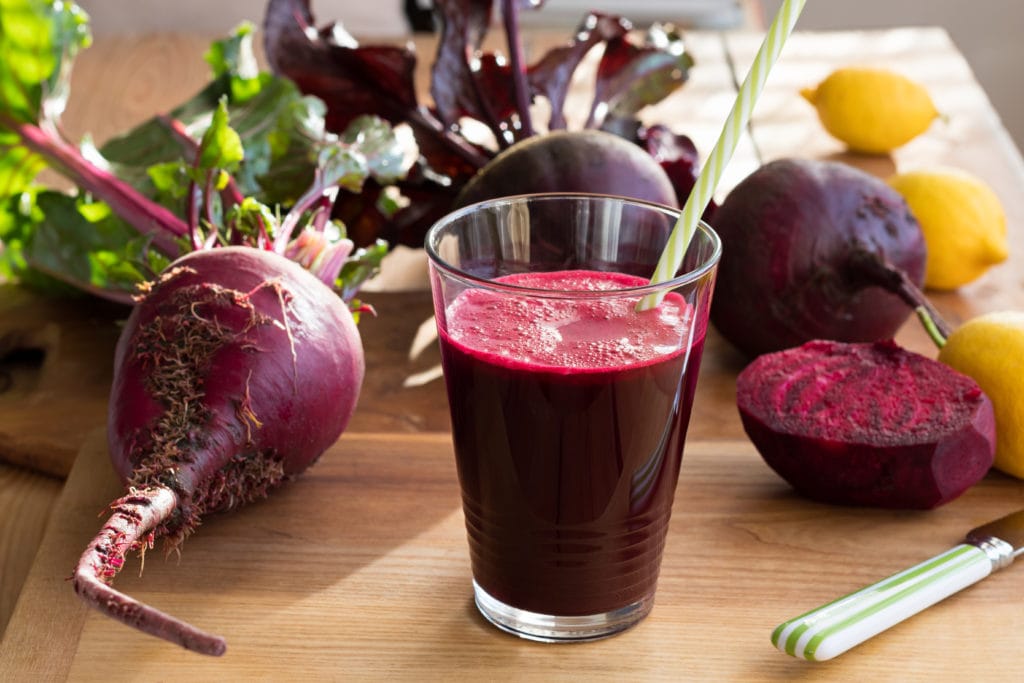Sometimes solving a mystery takes you down interesting rabbit holes—or even worse, up steep, mountainous terrain. What am I talking about? The real cause of severe constipation. So severe that you are lucky to have one, yes one, small bowel movement weekly, and sometimes not even that!
Based on the analysis of four major surveys, it is estimated that “over 4 million people in the United States have frequent constipation, corresponding to a prevalence of about 2 percent. Constipation was the most common digestive complaint in the United States, outnumbering all other chronic digestive conditions. Cathartics and laxatives were prescribed to 2 to 3 million patients yearly by general and family practitioners or internists. In 92,000 annual hospitalizations, constipation was listed among the discharge diagnoses. About 900 persons die annually from diseases associated with or related to constipation.”
These are staggering statistics. My intent with this article is to examine one of the most common reasons for this condition. Thanks for taking the time to read and comment.
We all know people who are intellectually brilliant yet totally unaware of how to stay even moderately healthy. When and how do so many lose their way? I will answer that crucial question and offer some solutions later on in this blog post. Thanks for your patience, and please keep reading if you, a friend, or a family member is perpetually constipated.
The problems caused by continual constipation happen to all age groups: the young, the middle-aged, and the old. The condition is most often treated with laxatives, which, unfortunately, only make the problem worse. After recommending numerous foods and supplements to one of my clients to help her bowels behave, I came across a short but interesting paragraph on the relationship between bile and constipation. (This is also where I read the words “no bile, no poop” and decided to use it as the title of this blog post.)
Without wasting a moment of time, I did the basic research and changed my client’s supplement protocol. Bingo—her bowels began to move more frequently. (Harrah for Jane!) I am now able to follow up with the necessary foods and other ways to keep her gut healthy for life, and yes, poop every day. (Smile)
The Definition and Function of Bile
Merriam-Webster defines bile as “a yellow or greenish viscid alkaline fluid secreted by the liver and passed into the duodenum where it aids especially in the emulsification and absorption of fats.”
Made by the liver and then released into the gallbladder, the major function of bile, as stated above, is to break down dietary fats into fatty acids, which are then taken into the body by the digestive tract. Bile is mostly cholesterol, bile acids and salts, and bilirubin (a breakdown of red blood cells, water and body salts).
According to this article in Clinical Gastroenterology and Hepatology: “Some BAs [bile acids] are natural laxatives and can influence colon motor activity, either by affecting colon secretion or as a prokinetic effect.” (Emphasis mine)
We may therefore surmise that a person with poor bile production may be a target for perpetual constipation.
Such was the case with my client. The moment I added Cholacol (bile salts) to her supplement and diet protocol, she immediately experienced relief. Her bowels began to function more to my expectations, although we still have a way to go. I believe her constipation will continue improve as she learns how to take better care of her liver, gallbladder, and gastrointestinal health. I’ll discuss the whole protocol and foods below, but first let’s review some bile basics below.
The Basics of Bile Production
The liver, one of the largest organs in the human body, is responsible for many of our essential metabolic functions. Among these is converting nutrients into substances our bodies can use. In fact, the liver can even convert toxic substances, such as alcohol, into harmless ones. (Of course, alcohol abuse can devastate the liver over time.)
With the help of vitamin K, the liver produces specific proteins that assist in blood clotting. However, the central role of the liver is to break down fats for energy production, which produces about 800–1000 ml of bile per day. As this article from the Mayo Clinic explains, “Bile flows from your liver into your gallbladder, where it’s held until needed during the digestion of food. When you eat, your gallbladder releases bile into the bile duct, where it’s carried to the upper part of the small intestine (duodenum) to help break down fat in food.”
(To learn more about the marvels of the gallbladder, I highly recommend Gallbladder Matters: Keep Yours for Life by Catherine Sarchenko and Dr. Richard Sarchenko, available from Selene River Press.)
Give Your Liver a Long Life with Lots of Healthy Bile
Now that I’d learned more about the critical nature of bile, I needed to explain to my client—without getting lost in the scientific weeds—how she could promote healthier bile production. I was therefore quite happy when I found this article: “5 Ways to Promote Bile Production to Optimize Nutrition.” I quote the five recommendations in full below (any emphasis mine):
#1. Remove Causative Factors
“First, remove causative factors that may be harming the liver. For example, avoid anything that increases lactate (lactic acid), such as coffee, sugar, alcohol and processed foods. The liver is the primary organ for lactate clearance; therefore, it’s important to ease the burden as much as possible.”
(Note: The lactate referred to here is a different form of lactic acid from “good” lactic acid. The two are often confused. For example, when you get a muscle cramp from running, lactate—or muscle fatigue poison—results from the cells running out of oxygen and burning sugar for energy instead. Good lactate is present in your skin, vaginal tract, and gut. In the gut, lactic acid bacteria convert lactose, or milk sugar, into lactic acid. All friendly biotics produce healthy lactic acid: cottage cheese, yogurt, mother’s milk, all cultured food. Calcium lactate is calcium bound to lactic acid. The liver clears the lactate, or muscle fatigue poison, produced by a lack of oxygen in the cells. It does not clear friendly lactic acid.)
#2. Eat Foods that Support the Liver
“Liver-supporting foods include bitter greens, dandelion, milk thistle, berries, and the juice of the beet leaf and root. Ginseng also promotes a healthy liver and bile production. To optimize the effectiveness of liver-supporting foods, it’s best to choose organic, which lowers the toxin burden on the liver.”
#3. Practice Diaphragmatic Breathing Exercises
“An interesting area of research in supporting the liver is diaphragmatic breathing exercises. The liver is positioned just below the diaphragm, and many people have shallow breathing. During deep diaphragmatic breathing, the diaphragm pushes down and massages the liver, stimulating bile production.
“Diaphragmatic breathing is said to help activate the liver and its detoxification pathways. When stressed the breath is shallow, which keeps stress producing toxins inside the liver. The relaxation response (RR) via deep breathing has been studied in recent trials with positive results.”
4. Try Intermittent Fasting
“Bile is continuously produced in the liver and stored in the gallbladder when not eating. Intermittent fasting can be a good way to increase the bile that is concentrated in the gallbladder.”
“Emotional stress is detrimental for health and it creates a cascade of fight or flight hormones, such as cortisol, nitric oxide and adrenaline. This puts a huge burden on the organs of the body, but especially the liver as it’s responsible for the removal of excess toxins and hormones.
“When it comes to the liver, it’s the bile the keeps the energy moving and releasing waste products into the feces. Nitric oxide and cortisol get trapped inside the liver if there is no way for it to flow out with adequate bile.
“Lowering stress and increasing bile production improves the body’s ability to detoxify and balance hormones. Increasing bile production also optimizes the absorption of fat-soluble vitamins A, D, E, and K in the small intestine.”
For a must-read on stress, read my blog post “The Longevity Secret, Part I.”
The Whole Food Supplements Protocol that Helped My Client
Remember that you may not need all of these products. However, in serious conditions such as my client had, these can be very helpful. I also monitored and modified the protocol as the situation improved. Do not embark on this protocol on your own. Check with your local chiropractor or holistic doctor to test for the supplements you are most in need of.
Lactic Acid Yeast: These wafers both cleanse and promote healthy function in the lower gastrointestinal tract.
Cholacol: A great source of bile salts. Supports healthy fat digestion and gallbladder function. Helps enzymes break down fat, which can help with discomfort after eating a fatty meal. Also helps with healthy elimination.
Livaplex: Foundational support for the liver. Supports healthy liver and gallbladder function. Supports the body’s normal toxin-elimination function, encourages healthy digestion of fats, enhances bowel function, and encourages healthy production.
Zypan: Combines pancreatin, pepsin, and betaine hydrochloride to facilitate healthy digestion.
A-F Betafood: This product is Betafood with more concentrated beet leaf and root. Supports normal processing of dietary fats for cholesterol metabolism. Supports healthy bowel functioning. Supports bile production in the liver and healthy bile flow in the gallbladder. Helps maintain healthy levels of fat in the liver.
Paraplex: Supports healthy pancreas, pituitary, thyroid, and adrenal gland function.
Trace Minerals-B12: Provides support for the pituitary gland, which stimulates and controls all the digestive secretions and in particular the liver and biliary secretions.
[xyz-ihs snippet=”Begin-Authors-Note”]Afterthoughts from the Traditional Cook
When and How Do So Many Lose Their Way?
I doubt that most people with serious health problems can make a sudden overnight change to a healthy lifestyle. This would include eating all the right foods, learning how to cook fresh foods, make ferments, bake whole grain sourdough breads, and reading the many powerful health books available. Last but not least, it also helps to find someone who can teach them about improving not only their physical health but also their emotional and spiritual health. So many of these skills are ideally learned in childhood. But, absent such luck, we each have to navigate this health journey over a lifetime if we want to make some order out of the chaos of ignorance.
It is my firm belief that we are made up of three inner beings: 1) the physical, 2) the emotional, and 3) the spiritual. When we only nourish one or two of our three beings, we can be sure that life will be unsatisfactory, and depression and sickness may follow. I will leave the emotional and spiritual for another time, but I hope that if you suffer from chronic constipation, you give the recommendations above a serious try. If they are done properly and with the intent to turn your life around, I guarantee that many other health issues, including the emotional and spiritual, will benefit.
—Maria Atwood, CNHP
Disclaimer from Maria Atwood, CNHP: I am a Certified Natural Health Professional, CNHP, not a medical doctor. I do not diagnose, prescribe for, treat, or claim to prevent, mitigate, or cure any human diseases. Please see your medical doctor or health practitioner prior to following any recommendations I make in my blog posts or on my website.
Images from iStock/Tharakorn (main), 7activestudio (body organs), Madeleine_Steinbach (beet juice), RyanKing999 (woman).





